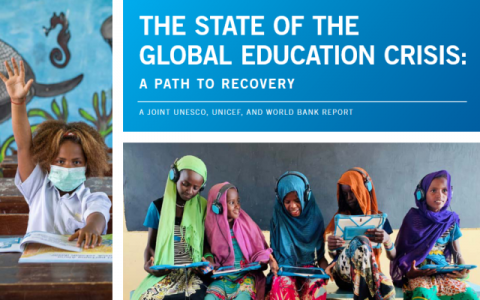
The closure of schools due to the pandemic had a huge impact on children's learning, but also on their mental health and other aspects of their lives. The recent report The state of the global education crisis - produced by Unesco, Unicef and the World Bank and released on 24 January on the International Education Day - shows that more than 635 million students remain affected by total or partial school closures.
"The children – it reads on the Unicef website - have lost basic numeracy and literacy skills. On a global level, the disruption of education has meant that millions of children have significantly missed out on the academic learning they would have acquired had they been in the classroom, with the youngest and most marginalised children facing the greatest loss".
Data from the report reveal, among other things, that in low- and middle-income countries, learning losses due to school closures have left up to 70% of 10-year-olds unable to read or understand a simple text, compared to 53% before the pandemic.
In Ethiopia, primary school students are estimated to have learned between 30 and 40% of the mathematics they would have learned had it been a normal school year, while in the United States, learning losses have been observed in many states including Texas, California, Colorado, Tennessee, North Carolina, Ohio, Virginia and Maryland. For instance, in Texas, two-thirds of third-graders were below average in mathematics in 2021, compared to half of their peers in 2019.
School closures have also had a considerable impact on other aspects of children's lives: "a growing body of evidence shows that Covid-19 has caused high rates of anxiety and depression among children and young people, and studies have found that girls, adolescents and those living in rural areas are more likely to experience these problems; more than 370 million children worldwide missed school meals during school closures, losing what for some children is the only reliable source of daily food and nutrition".
The publication is available on the Unicef website, in the dedicated news item.
Other materials and news can be found on this site under the topics Education and Children, Youth and Covid-19, which can be reached through the navigation menu "Topics".

